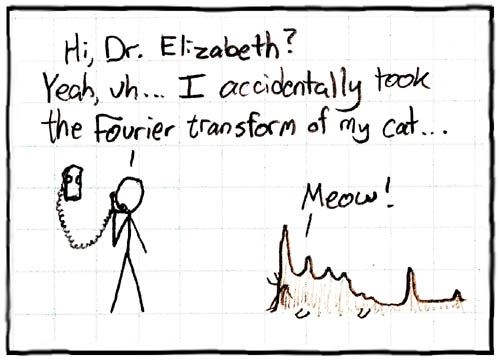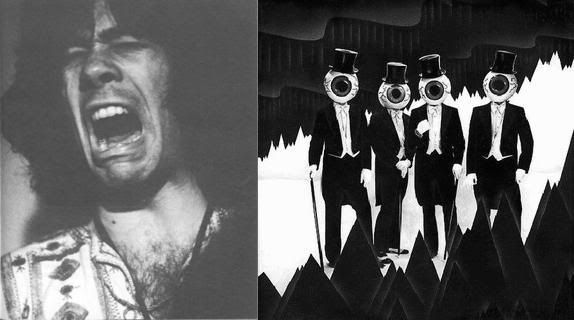The Greatest Mathematician?
Printed From: Progarchives.com
Category: Topics not related to music
Forum Name: General Polls
Forum Description: Create polls on topics not related to music
URL: http://www.progarchives.com/forum/forum_posts.asp?TID=39769
Printed Date: June 30 2025 at 13:58
Software Version: Web Wiz Forums 11.01 - http://www.webwizforums.com
Topic: The Greatest Mathematician?
Posted By: Equality 7-2521
Subject: The Greatest Mathematician?
Date Posted: July 09 2007 at 23:24
|
Based on whatever criteria you deem to constitute the greatest mathematician, who is the greatest from the list? I think there's enough math nerds here for this to work, and I hope it does. I tried to keep the list small enough so I know some names are omitted. I don't like other options in polls so I also omitted that. In choosing the contenders I tried to healthily balance my personal opinion with general consensus.
I was about to type up my choice/reasoning but I just realized Man vs. Wild is on, so I'll do it a little later. ------------- "One had to be a Newton to notice that the moon is falling, when everyone sees that it doesn't fall. " |
Replies:
Posted By: Vompatti
Date Posted: July 10 2007 at 10:15
|
e i *pi + 1 = 0 Leonhard Euler. |
Posted By: Equality 7-2521
Date Posted: July 10 2007 at 15:59
|
To many people suggesting any but Gauss is blasphemous. While he’s the obvious second choice for me, I think Euler deserves the title greatest mathematician. Admittedly, Gauss was greater at more fields, he was a master at anything he touched and he touched a great variety of things, but in regards simply to mathematics I believe Euler is the master. First he has to be the greatest algebraist who ever lived. This point is rarely disputed and rightfully so from looking at his work. He originated and popularized so much of the modern notation we use today from i to pi to e to sigma for infinite sums to f(x). Also he laid the foundations which lead to the creation of my two favorite fields: analytical number theory and complex analysis. His identity e i *pi + 1 = 0 simply amazes me for its sheer beauty and simplicity. Gauss said of the result, if it’s not immediately apparent to you upon hearing it, you’ll never be a great mathematician. Another favorite of mine is his expression of the Zeta function and its infinite series as an infinite product. ------------- "One had to be a Newton to notice that the moon is falling, when everyone sees that it doesn't fall. " |
Posted By: progismylife
Date Posted: July 10 2007 at 16:43
| Euler ftw! |
Posted By: micky
Date Posted: July 10 2007 at 16:56
|
Hari Seldon
------------- The Pedro and Micky Experience - When one no longer requires psychotropics to trip |
Posted By: Equality 7-2521
Date Posted: July 10 2007 at 16:59
|
^ You know Euler is great when his achievements are even greater than a mathematician from science fiction ------------- "One had to be a Newton to notice that the moon is falling, when everyone sees that it doesn't fall. " |
Posted By: micky
Date Posted: July 10 2007 at 17:02
Euler never inspired me to study Mathematics hahhaha  ------------- The Pedro and Micky Experience - When one no longer requires psychotropics to trip |
Posted By: el böthy
Date Posted: July 12 2007 at 10:38
|
Mathematician?... ok now Matias, hold yourself together, do not make fun of this people, they like math... you know that is pretty funny, but do not call them names now... neeeeeeeeeeeeerds!!! ...Im sorry ------------- "You want me to play what, Robert?" 
|
Posted By: Equality 7-2521
Date Posted: July 12 2007 at 10:57
|
^ You know music was considered an area of math for hundreds of years. You would learn the foundations of music from a mathematician. It was actually Pythagoras who discoved and laid down the harmonic intervals of instruments.Here's a quote from Leibniz, the inventor of the calculus.
"The pleasure we obtain from music comes from counting, but counting unconsciously. Music is nothing but unconscious arithmetic. "
So be careful who you are calling nerds
and of course because we know mathematicians are the smartest of all scientists and will eventually rule the world. ------------- "One had to be a Newton to notice that the moon is falling, when everyone sees that it doesn't fall. " |
Posted By: GoldenSpiral
Date Posted: July 12 2007 at 20:09
Fourier!!!
------------- http://www.myspace.com/altaic" rel="nofollow - http://www.myspace.com/altaic ALTAIC "Oceans Down You'll Lie" coming soon |
Posted By: Soul Dreamer
Date Posted: July 12 2007 at 20:37
|
Sir Isaac Newton. For constructing a completely new form of mathematics (differential equations) to solve real "physical" problems. The world would look completely different nowadays without that. And sorry, I'm not a "pure" mathematician, but a chemist & I know what I use most.... ------------- To be the one who seeks so I may find .. (Metallica) |
Posted By: el böthy
Date Posted: July 12 2007 at 21:59
what a party pooper  ------------- "You want me to play what, Robert?" 
|
Posted By: Draconean
Date Posted: July 13 2007 at 03:45
|
What about Blaise Pascal (1 Pa = 1 N/m²) ???
Not only he was a brilliant mathematician, but he also invented the first mechanical calculator (= the ancestor of "our" computer). ------------- I'm running still, I shall until, one day I hope that I'll arrive |
Posted By: Equality 7-2521
Date Posted: July 13 2007 at 09:01
|
^
I'm a big fan of his, though more of his philosophy than his math honestly. I'm not doubting the man's genius, but outside of probability he did very little in terms of pure math. I was looking for mathematicians with a bit broader scope. ------------- "One had to be a Newton to notice that the moon is falling, when everyone sees that it doesn't fall. " |
Posted By: Equality 7-2521
Date Posted: July 13 2007 at 09:03
------------- "One had to be a Newton to notice that the moon is falling, when everyone sees that it doesn't fall. " |
Posted By: paolo.beenees
Date Posted: July 13 2007 at 09:12
|
Leibnitz from the poll. Anyway, I expected to find Fibonacci in here. His series seems to be a huge source of inspiration for musicians (from Bach to Nono down to Kate Bush and Tool) ------------- 
|
Posted By: Tuzvihar
Date Posted: July 13 2007 at 18:57
|
What about Stefan Banach?
------------- "Music is much like f**king, but some composers can't climax and others climax too often, leaving themselves and the listener jaded and spent." Charles Bukowski |
Posted By: JJLehto
Date Posted: July 15 2007 at 00:19
|
WOW.....I have no idea.
But Euclid....didnt he invent that Geometry?
|
Posted By: XPEHOPE3KA
Date Posted: July 16 2007 at 07:12
|
From the list - Euler. Not Gauss because he was afraid to praise Lobachevskiy for his works publicly & for scientists - only after his death his letters to friends were published, and in at least one of which Gauss praised and recommended "Geometrical Investigations on the Theory of Parallels" (1840) of Lobachevskiy to his friend. Gauss is undoubtly a great mathematician but his character doesn't seem to be ideal. With Euler it's vice versa - he rarely finished his works up to the end, but he used to explain this like: "I gave the idea - there would be enough people to develop it more presicely than I did". Actually, I think that Euler was just very lucky - he had mighty brains and he was given extremely inspiring working conditions. If to speak about "all-time" best mathematician, but not regarding the list, then my vote will go to Thales just for being the first  . If the case is last ten years I would vote definitely for Perelman. . If the case is last ten years I would vote definitely for Perelman.
|
Posted By: BaldFriede
Date Posted: July 16 2007 at 10:46
|
Georg Cantor is definitely missing on the list. Bertrand Russel should be on the list too, in my opinion. By the way, Einstein is better known for his contributions to physics, but he had to invent a great part of the mathematics needed for his General Theory of Relativity himself. I must admit though that the beauty of e i *pi + 1 = 0 has never ceased to amaze me. The 5 most important numbers in the world combined into one formula, two of them being irrational, two others the most basic numbers in the world (and the neutral elements of addtion and multiplication), and one the square root of -1. -------------  BaldJean and I; I am the one in blue. |
Posted By: cuncuna
Date Posted: July 16 2007 at 10:49
|
It should be me... I reached places in math that changed the facial expression of my teachers all over the school days... ------------- ¡Beware of the Bee! |
Posted By: Equality 7-2521
Date Posted: July 16 2007 at 20:42
The first two mentioned were in my mind when making the list, but as I said I wished it to be brief and ultimately I decided to place Fermat and Fourier on the list instead of those two. Einstein crossed my mind however despite being a large idle of mine he wasn't exactly a master mathematician. He said of his General Relativity theory, "Since the mathematicians have invaded the theory of relativity, I do not understand it myself anymore."
I understand there's a strong element of humor there, but regardless you get the point I'm making. ------------- "One had to be a Newton to notice that the moon is falling, when everyone sees that it doesn't fall. " |
Posted By: Dean
Date Posted: July 16 2007 at 20:57
|
Newton - not a pure but applied mathematics - surely the most useful kind ------------- What? |
Posted By: Sinusoid
Date Posted: January 12 2008 at 20:18
| I went with my favourite, Leonard Euler. I found out that he helped develop modern function notation e.g f(x). I couldn't vote for Fermat solely because I had to do a presentation on his "Last Theorem" for my Math: Logic and Reasoning class. |
Posted By: moreitsythanyou
Date Posted: January 12 2008 at 21:18
|
Gauss is the man. Although the statistician in my is wondering why Bernoulli isn't up there.
-------------  <font color=white>butts, lol[/COLOR] <font color=white>butts, lol[/COLOR] |
Posted By: rileydog22
Date Posted: January 12 2008 at 23:15
Actually, three of them are irrational. i cannot be expressed as the quotient of two integers. -------------   |
Posted By: rileydog22
Date Posted: January 12 2008 at 23:16
|
I gotta go with Euler. He did so much in a huge variety of fields, from proto-calculus to geometry.
-------------   |
Posted By: moreitsythanyou
Date Posted: January 12 2008 at 23:18
Doesn't a number have to be real in order to be considered irrational, though? not sure myself. -------------  <font color=white>butts, lol[/COLOR] <font color=white>butts, lol[/COLOR] |
Posted By: Shakespeare
Date Posted: January 12 2008 at 23:20
|
George Orwell. And I quote, "Two plus two equals five." "No, actually, two plus two equals four." |
Posted By: Man With Hat
Date Posted: January 12 2008 at 23:21
|
Newton.
Euler close behind. ------------- Dig me...But don't...Bury me I'm running still, I shall until, one day, I hope that I'll arrive Warning: Listening to jazz excessively can cause a laxative effect. |
Posted By: rileydog22
Date Posted: January 12 2008 at 23:23
I don't know why anybody would even bother trying to solve an unsolved question in math (except for the million bucks), as their solution would be doomed to be less awesome than Orwell's elegant proof there. -------------   |
Posted By: progaeopteryx
Date Posted: January 14 2008 at 14:17
| I chose Euler. Another notable not on the list but worth mentioning is Johannes Kepler. |
Posted By: Padraic
Date Posted: January 14 2008 at 14:24
|
From the list, Euler. For one of, if not the greatest mathematicians of all time, my recommendation is Henri Lebesgue. |
Posted By: Padraic
Date Posted: January 14 2008 at 14:26
You are correct. The irrationals are a subset of the reals, and i is not a real number. |
Posted By: BaldFriede
Date Posted: January 14 2008 at 15:09
i is NOT an irrational number. Imaginary numbers and real numbers exist side by side, the only difference between them being that the imaginary number is a real number being multiplied with i. For each and every real number there exists an imaginary number and vice versa. And then there are the complex numbers, which consist of a sum of a real number and an imaginary number. A complex number has the form a + b*i, with a and b being real numbers. Interestingly complex numbers can be displayed in a coordinate system, with the real part of the number being the x-coordinate and the imaginary part the y-coordinate (this correlation is arbitrary, by the way, and could as well have been chosen the other way round). (2;3), for example, would mean the complex number 2 + 3*i. Instead of giving the Cartesian coordinates it is often very useful to give the polar coordinates of an imaginary number, which show the distance from the center of the coordinate system and the angle to a certain ray (usually given in radians) when dealing with complex numbers, especially when using roots. -------------  BaldJean and I; I am the one in blue. |
Posted By: Padraic
Date Posted: January 14 2008 at 15:24
I know, that's what I said. |
Posted By: el böthy
Date Posted: January 19 2008 at 12:27
 ...wow ...wow------------- "You want me to play what, Robert?" 
|
Posted By: King Crimson776
Date Posted: January 19 2008 at 17:01
math sucks

|
Posted By: ebag7125
Date Posted: January 25 2008 at 00:39
|
Lets hear it for Archimedes! PI ROCKS! ------------- 
|
Posted By: Philip
Date Posted: January 26 2008 at 11:35
|
I go for Euler. Where's Laplace?
|
Posted By: obiter
Date Posted: February 18 2008 at 21:10
None of the above although Gauss is the obvious choice. My vote goes to ....Srinivasa Ramanujan ------------- An té nach mbíonn láidir ní folláir dó bheith glic |
Posted By: martinn
Date Posted: February 18 2008 at 21:28
|
And what about Cauchy?
------------- 
|
Posted By: BaldFriede
Date Posted: February 19 2008 at 05:43
Ramanujan was certainly unique and outstanding; he was what I would call an "intuitive mathematician". -------------  BaldJean and I; I am the one in blue. |
Posted By: SpaceMonkey
Date Posted: February 19 2008 at 07:29
|
Russell Crowe. |
Posted By: BaldFriede
Date Posted: February 19 2008 at 07:41
How about Nicolas Bourbaki?  Mathematicians will of course know why I put the twinkle here. Mathematicians will of course know why I put the twinkle here.
-------------  BaldJean and I; I am the one in blue. |
Posted By: MikeEnRegalia
Date Posted: February 19 2008 at 09:05
^ Mathematicians and those who know Google ...  I never liked mathematics ... one wonders how I got my degree in computational science.  ------------- https://awesomeprog.com/release-polls/pa" rel="nofollow - Release Polls Listened to: 
|
Posted By: BaldFriede
Date Posted: February 19 2008 at 11:08
|
The most beautiful formula in mathematics, however, is eiπ + 1 = 0. It combines the five most important numbers in mathematics in one formula: 0 is the neutral element of addition and thus one of the basic numbers of mathematics. Interestingly it took mankind some time to "discover" this number; its discovery was one of the most important breakthroughs in mathematics. 1 is of course equally important, being the neutral element of multiplication and the basis of all counting. π is of course the most important number in geometry and trigonometry. It is approximately 3.14159265359...., a non-periodic decimal fracture. It is defined as the ratio of a circle's circumference and its diameter. e is just as equally important in calculus as π is in geometry. It is the basis of natural logarithm; it's value is approximately 2.7182818284590... i is the square root of -1. Some people may say "you can't draw the square root out of a negative number", but mathematicians invented a new kind of numbers for that, the so called "imaginary numbers". Their basis is i; it is the square root of -1. It is very important for solving polynomials. These five numbers are probably the five most important numbers in mathematics. To see them combined in one formula, together with the three basic arithmetic operations (addition, multiplication, exponentiation; subtraction, division and extracting roots are merely the inverses of these operations), is sheer beauty. -------------  BaldJean and I; I am the one in blue. |
Posted By: Padraic
Date Posted: February 19 2008 at 11:15
It is of the utmost importance in engineering, where the general formula is used all the time: e^(ix) = cos(x) + i*sin(x) so that for x=pi you get the formula quoted above. |
Posted By: clarke2001
Date Posted: May 20 2008 at 09:17
My vote went for Euler. But Ramanujan is...special.  ------------- |
Posted By: Equality 7-2521
Date Posted: June 30 2008 at 23:06
|
Ramanujan is indeed special but I didn't include him because while I feel he certainly had the natural ability to contend with those on the list, his output and importance of his results were hurt by his severe lack of training. If he had been born into more fortunate circumstances he certainly would be on the platform as all of these men, but unfortunately it was not so.
As a sidenote: There's a great biography written about him, which is fascinating even for those who aren't interested in math, called The Man WHo Knew Infinity by Kanigel. Check it out. ------------- "One had to be a Newton to notice that the moon is falling, when everyone sees that it doesn't fall. " |
Posted By: stonebeard
Date Posted: July 01 2008 at 00:20
|
This thread may give me nightmares. Math is apparently good. Numbers larger than 1,000 are likely to give me anxiety attacks (as well as anything less than -10, irrational, imaginary, or anything that has a letter or symbol to represent it). ------------- http://soundcloud.com/drewagler" rel="nofollow - My soundcloud. Please give feedback if you want! |
Posted By: Statutory-Mike
Date Posted: July 01 2008 at 00:42
|
I'm voting for Sir Issac Newton, because he's one of the only mathmaticians I am actually familiar with ------------- 
|
Posted By: rileydog22
Date Posted: July 01 2008 at 00:59
|
Leibniz>Newton at mathematics alone IMO. Of course, it's impossible to top Newton's achievements when you include physics and other achievements outside of "pure mathematics." -------------   |
Posted By: moreitsythanyou
Date Posted: July 01 2008 at 01:00
|
Lagrange has no votes and it should remain that way. Damn remainder formula.
-------------  <font color=white>butts, lol[/COLOR] <font color=white>butts, lol[/COLOR] |
Posted By: WinterLight
Date Posted: July 01 2008 at 09:46
|
Posted By: Padraic
Date Posted: July 01 2008 at 09:58
Good to see a real mathematician hanging out here...I'm just a simple electrical engineer who once had aspirations at taking real analysis. 
|
Posted By: WinterLight
Date Posted: July 01 2008 at 10:21
I've never cared much for analysis as I simply don't have the intuition for it. My interests are in the foundational aspects of math (set theory, logic, etc.). To my understanding, though, electrical engineers are generally perceived as the most "mathematical" of engineers since they use some fairly sophisticated techniques. |
Posted By: BaldFriede
Date Posted: July 01 2008 at 10:30
-------------  BaldJean and I; I am the one in blue. |
Posted By: WinterLight
Date Posted: July 01 2008 at 10:42
|
Posted By: BaldFriede
Date Posted: July 01 2008 at 10:53
 See my slightly extended post. See my slightly extended post.-------------  BaldJean and I; I am the one in blue. |
Posted By: BaldFriede
Date Posted: July 01 2008 at 15:37
|
Let me just remark something: Today we don't have many problems thinking about the number zero; we are used to it. But to people in former times the zero was not an easy concept. Let me give you an example. There are three apples lying on the table. If all three are eaten, how many apples remain? You will say "zero of course", but there are also zero pears, zero cherries, zero peaches and zero pineapples, to name but a few of the millions of things of which there are zero. Why the heck should we especially name zero apples? Just because there had been three before? No, "zero" is not a concept we encounter in the world of things, it is a pure mathematical concept. Which is why the invention of this number was so very important for mathematics. -------------  BaldJean and I; I am the one in blue. |
Posted By: Visitor13
Date Posted: July 02 2008 at 03:14
Yeah, right  http://www.youtube.com/watch?v=3xewJOKyyoc - http://www.youtube.com/watch?v=3xewJOKyyoc |
Posted By: Sacred 22
Date Posted: July 02 2008 at 03:32
Was it ever, it gave rise to "ON and OFF" and the binary number system we are all virtually slaves to. It makes Prog Archives possible.
|
Posted By: WinterLight
Date Posted: July 02 2008 at 08:24
Very close to compelling argument. However, there are some subtleties to discuss. We should reply "zero apples" because we were asked about the number of apples (in technical jargon, the cardinality of the set of all apples on the table). This is a well-defined concept (assuming that "apple" and "table" have sufficiently clear meaning, which I think they do for practical purposes). Now you're completely correct to say that there are zero pears, cherries, etc., but those responses, while true, are irrelevant to the question posed. The cornerstone of scientific investigation is the isolation of variables of particular interest. Of course, one might argue (with some legitimacy I think) that this is not a natural, but rather an acquired or learned, method of discovery or thinking. Moreover, you are right to assert that "zero... is a pure mathematical concept" rather than something we "encounter in the world of things." Yet this can be said of every number (have you ever seen a concrete "7" in reality, notwithstanding Sesame Street, of course?). As physics models rather than describes reality, so does mathematics model. I know a lot of this sounds like hairsplitting semantics, and practically it is, but these subtleties are crucial in precise and accurate reasoning about mathematics (or any other topic, especially abstract ones). |
Posted By: Equality 7-2521
Date Posted: July 02 2008 at 08:42
|
Of course my choosing of Mathematicians was very subjective and my reasoning for excluding Cantor would probably be that besides his beginnings in number theory, his work was exclusively directed towards Set Theory. Of course then you could look at Fermat being on the list and say the same, but I included him just because of my obsession with his theorems.
Honestly, I don't know how Fourrier made the cut especially with Cauchy omitted. ------------- "One had to be a Newton to notice that the moon is falling, when everyone sees that it doesn't fall. " |
 Equality 7-2521 wrote:
Equality 7-2521 wrote: